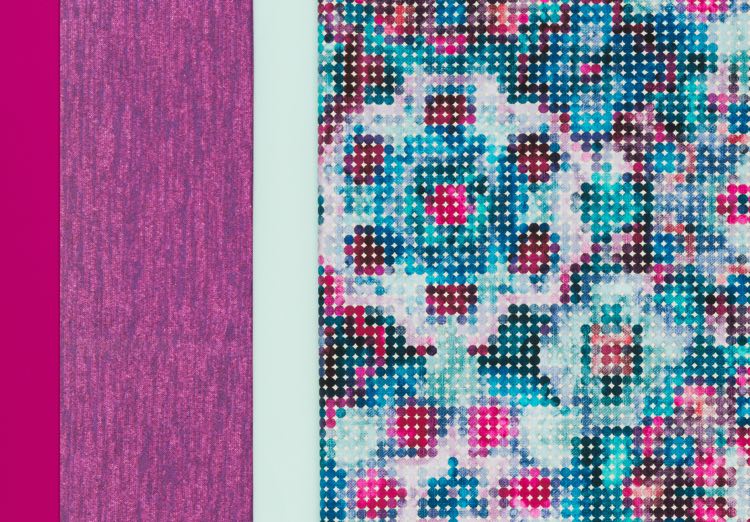Varese - Italian warp knitter Eurojersey has launched a new technical activewear collection featuring its environmentally friendly Sensitive fabrics.
Sensitive Fabrics are said to be ideal for training and muscle toning in all sports, combining performance with flexibility and protection. They are designed to sculpt the silhouette and adequately support the muscle tissue, while providing lightness and calibrated compression.
With their ultra-flat surface and elevated elastic memory, Sensitive Fabrics are also said to provide a solution for sports garments requiring the most innovative treatments to make them weather-proof in all conditions. Among the new developments in this collection are Sensitive Fabrics bonded with special wind-proof coatings and bicoloured solutions in which the fabrics are bonded with fleece and water-repellent membranes with waterproof properties.
"Every sport requires an accurate selection of garments defined by new colour and print concepts," Eurojersey said. "React, the new Autumn/Winter 2022 Activewear collection of Sensitive Fabrics develops the capacity to enhance key aspects of the athletes’ performance and talent to ensure maximum results. Innovation placed at the service of an energizing fit, interpreted by materials that guarantee the ultimate workout and competitive experience."
Eurojersey makes the warp knitted stretch nylon fabrics in its fully integrated facility in Varese, north of Milan. In 2019, it became the first textile company to declare its Product Environmental Footprint (PEF), having been awarded PEF 010/19 certification by Certiqualit.
The PEF method to evaluate the environmental footprint of its activity was done by measuring 16 indicators involved in the analysis, including: the energy footprint, the carbon footprint, the water footprint, eco-toxicity, the eutrophication of freshwater and seawater, the deterioration of lakes and forests caused by acidic emissions.
On evaluating the water footprint, which determines the impoverishment of water resources by human activities carried out in a given area, the environmental impact of Eurojersey’s production of one square metre of dyed fabric was the equivalent of 1.3 – 4.1 cubic metres of water. If we consider that the footprint determined by one 0.75 litre bottle of still wine is equivalent to 1.27 cubic metres of water, its impact is therefore comparable to the environmental footprint of one square metre of fabric.
The carbon footprint, which measures the impact of greenhouse gas emissions on climate change, has shown that one square metre of dyed fabric has produced an environmental impact ranging from 1.01 to 2.77 kg of CO2eq. The footprint of one kg of pasta is equivalent to 2.11 kg of CO2eq. The energy footprint of Eurojersey has evidenced that one square metre of dyed fabric has produced from 17.28 to 47.07 MJ. Such an impact is comparable to that associated with a Euro 5 vehicle covering a distance of 10 km equal to 49.1 MJ.
These savings are all part of the company’s noted commitment towards sustainability, Eurojersey says, adding that there has also been an annual saving of 4,000 metres of cellophane and 9,000 cardboard packaging tubes due to these efforts.
